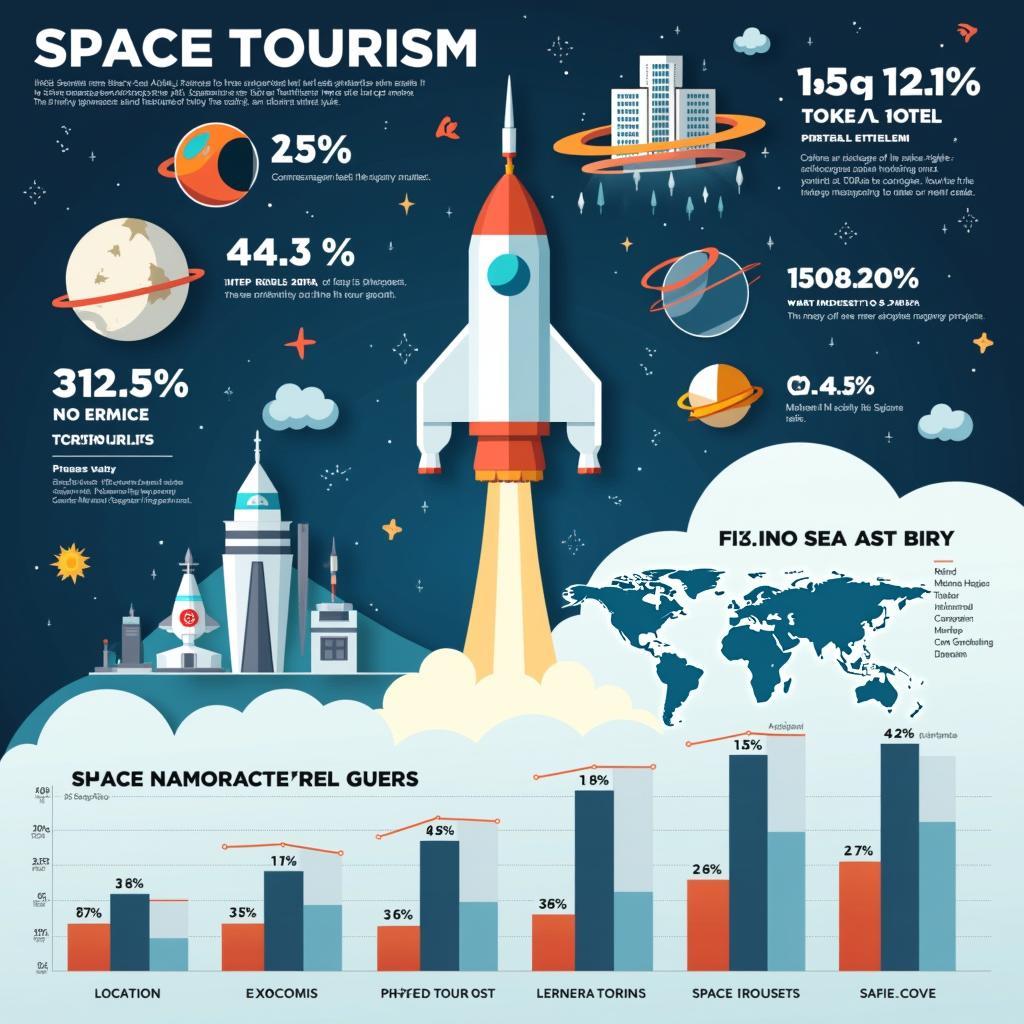Space tourism and its economic implications have become increasingly relevant in IELTS Writing Task 2 examinations. Similar to effects of space exploration on the economy, this topic has appeared in various forms over the past five years, particularly in questions about technological advancement and economic development.
Nội dung bài viết

Analysis of Recent IELTS Question
Some people believe that space tourism will boost the economy in the future, while others think it is a waste of resources. Discuss both views and give your opinion.
This question requires candidates to:
- Examine both positive and negative economic impacts
- Present balanced arguments
- Provide a clear personal stance
- Support ideas with relevant examples
Band 9 Model Essay
Like economic impact of space tourism, this emerging industry presents both opportunities and challenges. Here’s a high-scoring response:
The emergence of commercial space travel has sparked intense debate about its economic implications. While proponents highlight its potential for generating revenue and technological advancement, critics argue that these resources could be better allocated elsewhere. In my opinion, space tourism’s economic benefits outweigh its drawbacks.
Those in favor of space tourism emphasize its substantial economic potential. The industry creates high-paying jobs in engineering, research, and support services. For instance, companies like SpaceX and Blue Origin have already employed thousands of professionals, contributing significantly to local economies. Moreover, the technological innovations developed for space tourism often have practical applications in other sectors, creating additional revenue streams through patents and commercial adaptations.
Critics, however, contend that space tourism diverts valuable resources from more pressing needs. They argue that the massive investments required could be better spent addressing earthbound challenges like poverty or climate change. Additionally, the industry currently caters exclusively to the ultra-wealthy, limiting its immediate economic benefits to a small segment of society.
Nevertheless, I believe the long-term economic advantages are compelling. The space tourism industry has already demonstrated its capacity to attract private investment, reducing the burden on public funds. Furthermore, as with traditional aviation, costs will likely decrease over time, making the service more accessible and commercially viable. The industry also stimulates related sectors such as manufacturing, telecommunications, and hospitality.
In conclusion, while concerns about resource allocation are valid, space tourism’s potential to drive economic growth through innovation, job creation, and industry development makes it a worthwhile investment for the future.
Band 7 Model Essay
When discussing the importance of sustainable tourism for the environment, we must also consider new forms of tourism like space travel:
Space tourism has become a controversial topic in recent years. Some people think it will help improve the economy, while others believe it wastes money and resources. This essay will discuss both perspectives before presenting my view.
Supporters of space tourism say it can bring many economic benefits. First, it creates new jobs in different areas like engineering and tourism. For example, Virgin Galactic has hired hundreds of people to work on their space program. Second, it helps develop new technologies that can be used in other industries, which is good for the economy.
However, critics argue that space tourism is not a good use of money. They believe the huge amounts spent on space projects could help solve problems on Earth, such as poverty or healthcare. Also, only very rich people can afford space travel right now, so it doesn’t help the general economy much.
In my opinion, space tourism can be good for the economy if managed properly. While it’s expensive now, the costs will probably go down in the future, just like regular air travel did. This will make it more accessible and create more business opportunities.
To conclude, although space tourism requires large investments, its potential economic benefits make it worthwhile in the long run.
Vocabulary to Remember
- Commercial viability (n) /kəˈmɜːʃəl vaɪəˈbɪləti/ – ability to succeed financially
- Resource allocation (n) /rɪˈsɔːs ˌæləˈkeɪʃn/ – distribution of available resources
- Innovation (n) /ˌɪnəˈveɪʃn/ – new method, idea, or product
- Infrastructure (n) /ˈɪnfrəˌstrʌktʃər/ – basic physical systems of a business or nation
- Revenue stream (n) /ˈrevənjuː striːm/ – source of income
- Technological advancement (n) /ˌteknəˈlɒdʒɪkl ədˈvɑːnsmənt/ – progress in technology
- Economic implications (n) /ˌekəˈnɒmɪk ˌɪmplɪˈkeɪʃnz/ – effects on the economy
- Private investment (n) /ˈpraɪvət ɪnˈvestmənt/ – funding from private sources
Remember to practice writing your own response to this question and share it in the comments section for feedback. Consider exploring related topics like the impact of space exploration on international cooperation or the role of private companies in space development.